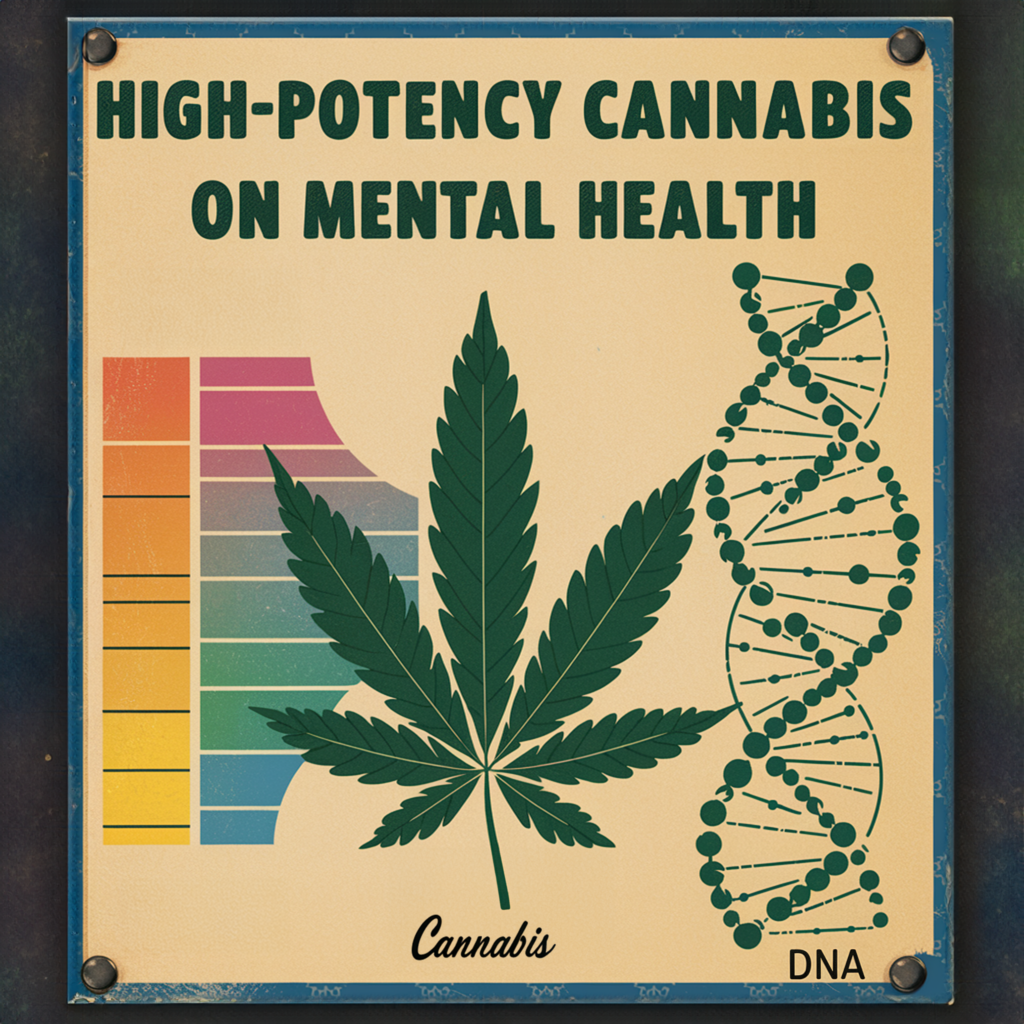As cannabis use continues to rise, especially in its more potent forms, so do discussions around its effects—both positive and potentially risky. For many, high-potency cannabis offers significant relief for chronic pain, anxiety, and other conditions. However, recent studies suggest that regular use of high-THC products may also influence mental health in ways we are just beginning to understand. This article explores both sides of the equation, shedding light on the research while recognizing the importance of cannabis as a therapeutic tool.
The Role of High-Potency Cannabis in Mental Health
Cannabis has long been used for its therapeutic benefits, from reducing pain and inflammation to alleviating symptoms of PTSD and anxiety. In fact, for some medical patients, high-potency cannabis is an essential part of their treatment plan, offering relief where other medications may fall short. The growing availability of cannabis with higher THC content has given users more options to tailor their consumption to their specific needs, making cannabis a versatile option for various conditions.
However, as the potency of cannabis increases, so does the need for a deeper understanding of how it interacts with the body—particularly the brain. A recent study by researchers at [Institution Name] provides new insights into the molecular changes that occur in the DNA of frequent high-THC cannabis users. These findings suggest that while high-potency cannabis can be beneficial, its impact on mental health, particularly for those predisposed to certain conditions, warrants further exploration.
Exploring DNA Methylation and Cannabis Use
The study in question highlights changes in DNA methylation, a natural process that influences how our genes are expressed. This process doesn’t change the DNA itself but can affect how certain genes function. Researchers found that frequent users of high-potency cannabis exhibited unique patterns of DNA methylation, particularly in genes linked to immune system response and energy production.
While these molecular changes are intriguing, it’s important to note that their practical effects on mental health are still being studied. The idea that cannabis could leave a “biological fingerprint” on our DNA is fascinating, but it doesn’t necessarily mean that these changes are harmful or permanent. For medical users, especially those relying on cannabis for relief, understanding these changes may help refine how cannabis is used for optimal therapeutic benefit.
The Potential Connection Between High-Potency Cannabis and Psychosis
One of the more widely discussed topics in the study is the potential link between regular high-THC cannabis use and psychosis—a condition characterized by a disconnection from reality, which can manifest in hallucinations or delusions. While psychosis is rare, the research suggests that individuals with a predisposition to mental health conditions, particularly those in at-risk populations, may experience heightened vulnerability.
It’s important to approach these findings with nuance. For most cannabis users, even those who consume high-potency products, the risk of developing severe mental health issues like psychosis is relatively low. However, understanding this risk allows users to make informed choices about their consumption, especially if they have a history of mental health issues or are sensitive to THC’s effects.
The Importance of Balanced Cannabis Use
As cannabis becomes more mainstream and its potency increases, it’s crucial to balance the conversation around its effects. High-potency cannabis can be a game-changer for medical patients, offering relief where traditional medications may not. At the same time, understanding the potential long-term effects—particularly in terms of mental health—is essential for both recreational and medicinal users.
While studies like this one bring new information to light, they are just the beginning of a much larger conversation. More research is needed to fully understand how high-THC cannabis affects different people in different ways, and what can be done to mitigate any potential risks while still providing the benefits that so many rely on.
Moving Forward: What This Means for Cannabis Users
As the cannabis industry continues to evolve, so too must our understanding of how different forms of the plant affect the body and mind. High-potency cannabis offers incredible benefits for many users, but it’s also essential to stay informed about potential risks, particularly for those with pre-existing mental health conditions.
For both medical and recreational users, knowledge is power. By staying aware of ongoing research and understanding how cannabis interacts with our bodies, we can make informed decisions that maximize the benefits while minimizing any potential risks.

***
Trap Culture is the ultimate destination for cannabis enthusiasts who want to experience the best of Arizona’s cannabis culture. Whether you are looking for the hottest cannabis-friendly events, the latest news on debunking negative myths about marijuana, trends in the industry and exclusive, limited-edition products from the top brands in the market, Trap Culture has you covered. Visit our website to learn more about our events, our blog, and our store. Follow us on social media to stay updated on the latest news and promotions. Join the Trap Culture family and experience the most immersive and engaging cannabis-friendly social events in Arizona.




